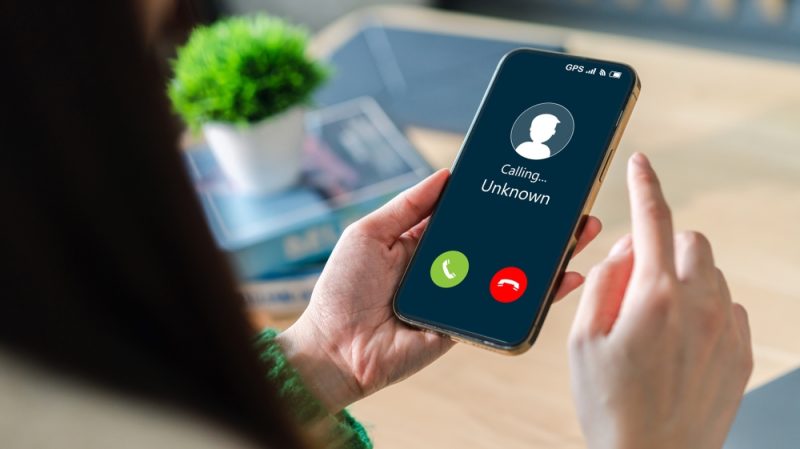In the competitive landscape of outbound calling, making sure your calls are trusted and answered is more important than ever. Unlike Mojo, many companies turn to local presence caller ID systems in the hopes of increasing answer rates. These systems automatically assign local area codes to outgoing calls, creating the illusion of a local caller, and change them during the call session based on the volume of calls. While this might seem like a good way to gain trust and improve pick-up rates, it often does the opposite, particularly in today’s stringent regulatory and consumer trust environment where whitelisted caller ID shines.

The Problems with Local Presence Caller ID Systems
1. Incompatibility with Stir/Shaken Standards
Stir/Shaken is a framework established to combat caller ID spoofing by verifying calls at the network level. Calls that are authenticated receive a certification level, with the highest being attestation A, which signifies full verification and trustworthiness. Local presence caller ID systems, however, do not comply with Stir/Shaken at this level. Instead of authenticating each call as coming from a specific, verified source, they assign numbers based on location without verification, resulting in lower trust certification or even no certification at all. This puts your calls at greater risk of being labeled as potential spam, significantly decreasing their legitimacy.
2. Lowered Legitimacy and Increased Spam Labeling
Calls made with a local presence system lack the network verification or valid CNAM registration that consumers now expect, making them appear less credible. Many carriers have become highly vigilant about flagging unverified calls, and calls with rotating area codes from local presence systems are more likely to be flagged as spam. This can damage your business’s reputation, resulting in more unanswered calls and a perception of untrustworthiness among potential customers.
3. Recipients Don’t Recognize Who is Calling
When a local presence caller ID system assigns a rotating, anonymous local number, recipients don’t know who is on the other end. The lack of identifiable caller information leads to a lower likelihood of someone answering the phone. Many consumers now prefer to see a recognizable name or an authenticated number, particularly given the rise in robocalls and spam. Without that personal or company identification, the chances of connecting with your target audience diminish significantly.
4. Inconsistent Caller ID and Brand Representation
One major disadvantage of local presence systems is the inconsistency in caller ID. Because the number changes based on location, your brand lacks a recognizable caller ID that recipients can remember or associate with. Instead of knowing they’re receiving a call from a trusted entity, recipients are left guessing, and any trust that might build over multiple calls is lost.
5. Lower Call Quality and Engagement Rates
When your calls are flagged as spam or otherwise unverified, recipients may assume they’re receiving a low-value or even malicious call, further diminishing their willingness to answer. This can lead to fewer conversations, missed opportunities, and a lower return on your calling efforts.
The Better Alternative: Whitelisted Caller ID and Mojo Caller ID
Using a whitelisted and verified caller ID, you’re taking proactive steps to ensure that your calls comply with Stir/Shaken standards and are received as legitimate. Here’s how it makes a difference:
Verified Calls with Stir/Shaken Attestation Level A:
Calls sent with a whitelisted caller ID have the highest level of certification, assuring recipients that the call is from a trusted source by displaying true and accurate caller ID information. This reduces the likelihood of being mistakenly flagged as spam, so your calls reach the intended audience.
Consistent Caller Identification:
With a verified caller ID, your calls consistently display the same number, allowing recipients to recognize your business and build familiarity with your brand.
Increased Answer Rates and Engagement:
Calls from verified IDs are trustworthy, making recipients more likely to answer. This means more valuable conversations, higher engagement, and a better return on your outreach efforts.
Improved Brand Reputation:
Using a single, verifiable number not only reduces the risk of mistaken spam flagging but also enhances your reputation as a legitimate, trusted caller. This can improve long-term customer relationships and strengthen your brand.
While other companies may pitch local presence caller ID systems as increasing answer rates, not only do they not increase answer rates, but they also have significant drawbacks, especially as consumer trust and regulatory standards evolve.
In contrast, Mojo’s complimentary whitelisted caller ID service and Mojo Caller ID numbers with whitelisting provide a verified, consistent caller ID that meets Stir/Shaken requirements with attestation level A. This means Mojo Caller ID ensures that each call is authenticated, dramatically reducing the chance of being improperly flagged as spam and giving your business a trusted, recognizable presence on recipients’ screens. With Mojo Caller ID, your calls reach the intended audience with enhanced authenticity, resulting in more productive connections and conversations. Choosing Mojo’s whitelisted caller ID over a local presence system sets your business up for a stronger, trust-based outreach approach, fostering valuable relationships with every call.
*Mojo’s optional caller ID whitelisting service is free on all dialer subscriptions. Mojo’s whitelisting service provides your caller ID with CNAM registration, consistent caller ID labeling, and legitimacy on the network.
*Mojo Caller ID is a fresh caller ID registered in your name, with CNAME registration and whitelisting. Mojo Caller ID is $10 per month, unlimited use.


